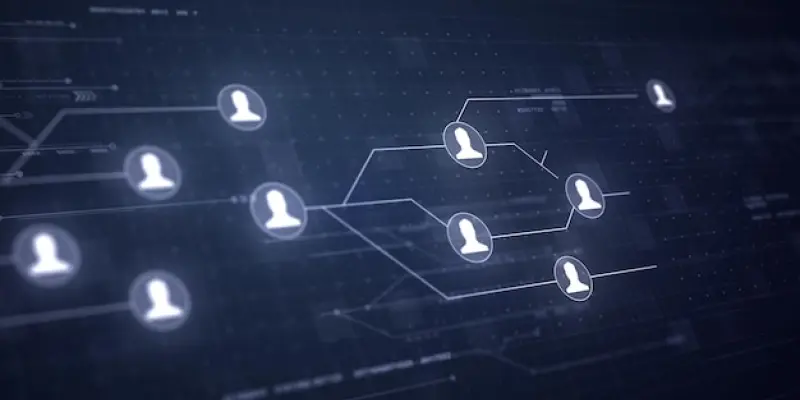The wave of technological advancements has permeated various sectors, with human resources technology (HRTech) standing at the forefront of this digital revolution. Within the public sector, HRTech has catalyzed significant enhancements in operational efficiency, employee satisfaction, and decision-making processes. The integration of Tyler Technologies’ Enterprise Resource Planning (ERP) software with The Work Number from Equifax exemplifies this surge toward modernity. This collaboration aims to automate income and employment verification, reducing administrative burdens traditionally borne by HR departments in public sector organizations. The partnership emphasizes security enhancement and efficient process management, illustrating a broader trend toward incorporating digital solutions to streamline HR tasks.
Streamlining HR Processes Through Automation
Automation has emerged as a transformative force in streamlining HR operations, particularly in public sector organizations that often grapple with cumbersome bureaucratic processes. The collaboration between Tyler Technologies and Equifax epitomizes this shift by alleviating repetitive manual tasks associated with employment verifications. By adopting automated solutions, HR departments can devote resources to more strategic initiatives that align with organizational missions. This transition not only fosters efficiency but also enhances the employee experience by expediting verification processes vital for access to credit, housing, and government benefits. Encapsulating this automated approach, verifiers such as lenders and social service agencies can make quicker, more informed decisions. The accessible, encrypted employee data supports an environment where sensitive information is protected while being available around the clock, thus accommodating diverse verification needs. This modern approach reduces risks tied to manual verifications and contributes to a seamless HR operational flow, positioning the public sector as a pioneer in adopting technology-driven innovations.
Enhancing Security and Accessibility of Employee Data
In parallel with efficiency improvements, HRTech innovations underscore the essential balance between accessibility and security in handling employee data. The collaboration between Tyler Technologies and Equifax prioritizes encryption, ensuring that critical employee data remains protected from unauthorized access. This focus on security is crucial for public sector entities managing vast amounts of sensitive information. The incorporation of HRTech solutions allows for 24/7 data accessibility, facilitating round-the-clock verification services without compromising security protocols. This dual emphasis on availability and protection marks a significant evolution in how employee information is managed and handled, bridging the gap between swift access to verifications and stringent safeguarding measures. As organizations transition to technology-oriented frameworks, they enable more robust data management while ensuring the integrity and confidentiality of the information they possess. This transformation not only amplifies HR departments’ roles within public sector organizations but also fortifies public confidence in utilizing technological solutions for sensitive HR functions.
Strategic Contributions to Public Sector Objectives
Revolutionizing public sector HR processes through HRTech goes beyond mere efficiency; it empowers HR professionals to make strategic contributions toward achieving broader organizational goals. By automating manual tasks and enhancing data security, HR departments are liberated to focus on initiatives that drive organizational growth and employee development. This strategic realignment leads to more meaningful employee interactions and supports overarching public sector objectives. The integration of ERP solutions like Tyler Technologies’ software promotes innovation and transparency within governmental entities, allowing HR professionals to play a pivotal role in shaping future policies and practices. As public sector organizations look to enhance service delivery and align with contemporary best practices, embracing HRTech solutions marks a crucial step in this evolution. These technological advancements not only streamline processes but also create opportunities for HR experts to influence strategic decisions, thereby reinforcing the sector’s commitment to efficiency, security, and progress.
Future Implications and Strategic Considerations
Automation has become a pivotal force in refining HR operations, especially within public sector entities that often face challenging bureaucratic hurdles. The partnership between Tyler Technologies and Equifax illustrates this shift, streamlining the repetitive, manual tasks linked to employment verifications. By embracing automated systems, HR teams can allocate resources to more strategic tasks aligned with their missions. This change not only boosts efficiency but also improves employees’ experiences, hastening verification processes crucial for accessing credit, housing, and government benefits. As a result, verifiers, including lenders and social service agencies, can make swifter, well-informed decisions. Encrypted employee data ensures sensitive information is safeguarded while remaining available around the clock, meeting diverse verification needs. This contemporary approach mitigates the risks of manual processes and facilitates seamless HR operations, positioning the public sector as a pioneer in embracing technology-driven solutions and innovation.

